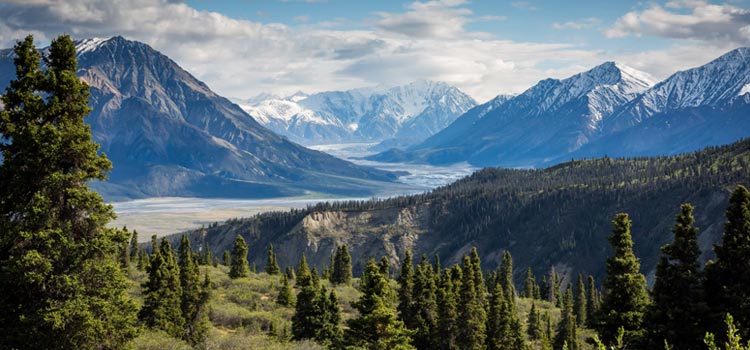Feeling like you’re cooped up in an urban, cement-walled prison? Looking for a career where you get to touch plants, cuddle animals, breathe fresh air, and even all of the above? Look no further because today, we list nature jobs that you can apply for!
- Inbox Dollars - Get paid to check your email. $5 bonus just for signing up!
- Survey Junkie - The #1 survey site that doesn't suck. Short surveys, high payouts, simply the best.
- Nielsen - Download their app and get paid $50!
So much has been written about the healing properties of nature. Studies have found that one’s mental health improves when one is exposed to nature (Source).
This has become even more important in the last couple of years as the pandemic forced people to stay inside their homes. Now that life is slowly getting back to normal, people are understandably excited to go outside.
So why not find a job that lets you experience nature and help save the planet while getting paid for it?
Go through the list below and find the nature career that fits you!
15 Unique Nature Jobs To Apply For
Whether you’re just starting your career or you’re looking for a change of scenery, here are some unique nature jobs so you can work while being surrounded by nature and showing your love for the environment.
Note: Salary information is from PayScale.com unless otherwise indicated.
1. Horticulturist
Horticulturists are basically garden scientists who are knowledgeable about different plant species and use that knowledge to cultivate and propagate plants.
They make sure that the right plants are planted in the right soil in the right place.
They focus on improving plants toward a certain goal, such as increasing a certain plant’s yield, developing disease-resistant plants, cultivating drought-resistant plants, or simply maximizing a plant’s health.
Landscape architects may work with horticulturists to decide what type of plant is best suited to their design.
Farmers, vineyard owners, orchard owners, and other similar owners work with horticulturists to increase yields and breed new plant varieties that can resist drought, pests, and extreme temperatures.
Other horticulturists inspect fruits and vegetables for government and private agencies.
Average annual salary: $42,991
Education Level: Bachelor’s degree in plant science or botany
2. Forester
Foresters play a significant role in land management, conservation, and rehabilitation.
They are responsible for forest management and such tasks as choosing locations for tree plots, inspecting and marking trees that are ready to be harvested, applying sustainable timber harvesting, assisting in wildfire prevention, implementing forest regulations, and other technical duties.
Foresters can be hired by local, state, and federal government agencies to manage forests in national and state parks, as well as unprotected forests to reduce wildfires, prevent illegal logging and burning, and ensure wildlife habitat is protected.
Logging companies hire foresters to make sure they are practicing sustainable harvests.
Urban planners hire foresters as well to maintain plots of trees in the middle of urban areas to ensure the safety of both the humans who spend time there and the wildlife population that live in the trees.
Note that certain states require foresters to be licensed, and getting a certification from a professional organization such as the Society of American Foresters is advantageous as well.
Average annual salary: $53,637
Education Level: Bachelor’s degree in forestry or forest management; also agricultural engineering, environmental science, conservation
3. Conservation Scientist
A conversation scientist, in a nutshell, studies the quality of various natural resources and plans how to use them without causing severe, permanent damage to the environment.
As you can imagine, as there are many natural resources with so many entities, both private and public, that want to tap into those natural resources, there are many ways to be a conservation scientist.
No joke. Here are the fastest ways to make easy money online. Click here to see how.
For instance, you can work as a conservation ecologist and consult with the government or private companies planning to develop some land or water. You’ll be surveying the planned site for the possible impact on habitats and protected species in the area, letting clients know about the potential issues, and providing advice and recommendations to minimize their impact.
You can also work as a conservation biologist, where you study different plant and animal species in the field with the aim of protecting their lives from human-made obstacles and dangers.
Or you can become a conservation geoscientist and help prevent soil and groundwater contamination by determining safe locations for disposing of waste such as landfills, nuclear power plants, industrial wastewater, and many others.
The salary range is a bit higher than other nature jobs in this list because the education and research experience required are also higher.
Average annual salary: $69,020 (Source)
Education Level: At least a master’s degree, preferably a Ph.D., in your chosen specialty
4. Meteorologist
If it wasn’t for meteorologists and their work, we wouldn’t have known about climate change and its effects on all organisms on Earth.
Meteorologists collect, analyze, and interpret atmospheric data and study various weather conditions for various
Government agencies (such as the National Weather Agency) are the largest employers of meteorologists. Even the military hire meteorologists to help them plan military operations around weather conditions.
Media companies also hire meteorologists for their forecast reports, although this may be mainly a desk job.
Law firms and insurance companies can also hire forensic meteorologists to recreate the weather conditions on a particular date, time, and location.
Average annual salary: $55,129
Education Level: Bachelor’s degree in meteorology or atmospheric science; training in weather analysis, dynamic meteorology, forecasting advantageous; certification from professional organizations a must for some employers
5. Oceanographer
Around 71% of the Earth’s surface is all ocean, and we haven’t even explored over 80% of it.
Oceanographers aim to change this by studying the ocean and its different aspects. Physical oceanographers study the currents, tides, waves, and erosion, while chemical oceanographers study the chemical composition of ocean water and geological oceanographers focus on the ocean floor.
Duties of oceanographers can vary greatly, but most oceanographers spend a lot of time on a boat to collect data and perform experiments. Plenty of oceanographers also spend time teaching and training aspiring oceanographers when they aren’t on boats and doing their research.
The insights from their research impact marine wildlife conservation and the proper extraction of fuels (oil and natural gas) from the ocean.
Government agencies and research agencies are the biggest employers of oceanographers, but private companies, especially energy companies, can pay more.
Average annual salary: $67,232
Education Level: Master’s degree in oceanography or specialized field; Ph.D. is preferred and can command higher pay
6. Limnologist
If oceanographers study the oceans, limnologists study freshwater bodies, both natural (e.g., lakes, rivers, ponds, streams, springs) and manmade (e.g., dams, reservoirs, canals).
You can make money from home and it doesn't have to be challenging. Click here to see how.
They study the physical, chemical, biological, and ecological properties of these freshwater bodies and analyze the data they collect to be able to make recommendations to clients.
Specific duties of limnologists may vary depending on who they’re working for and their specialties.
The ultimate goal is to protect the freshwater ecosystems and minimize the impact of human development and activities such as manufacturing, farming, or recreational activities on these ecosystems.
If you like working near water but freak out over a wide expanse of nothingness, being a limnologist may just be the nature job for you.
Average annual salary: $51,826 (Source)
Education Level: Master’s degree in limnology, aquatic biology, or other related courses
7. Naturalist
If you’ve always admired Sir David Attenborough, being a naturalist might come naturally (!) to you.
Naturalists, also called “park and wildlife naturalists,” observe living species in nature and study their impact on one another and on the environments where they live.
They look for evolutionary indicators that explain why a certain attribute is beneficial or detrimental to a specific organism.
Government agencies that oversee national parks, state parks, fish and wildlife, and outdoor recreation are the usual employers of naturalists.
Private companies and organizations that oversee an outdoor space where wildlife live also hire naturalists to ensure that any development on their property doesn’t disrupt the ecological balance in the area.
Average annual salary: $39,217
Education Level: Bachelor’s degree in wildlife ecology, environmental science, botany, and similar fields
8. Outdoor Guide
Imagine waking up every day, putting on your hiking gear and shoes, and going outside into the wild.
If that sounds like a great life to you, well you might want to turn that into a career.
Outdoor guides lead individuals or groups through outdoor recreation activities and educate them about the flora, fauna, and history of a certain area.
They can lead hiking, wildlife watching, birdwatching, hunting, or fishing trips with enthusiasts, tourists, or park guests.
The more active ones can be adventure guides for activities like backpacking, mountain climbing, biking, kayaking, rafting, and other much more strenuous activities.
Aside from the educational requirements, you’ll need additional certifications for skills such as first aid, life guard, water rescue, wilderness first responder, and outdoor leadership training.
You can find jobs with guided tour companies or you can offer your services yourself on a freelance basis.
Of course, there are educational and experience requirements to be an outdoor guide, but the best ones are those who truly love nature and are able to express this by sharing their enthusiasm with other people.
Average annual salary: $39,732
Education Level: Bachelor’s degree is an advantage but not required; certifications depend on activities you want to lead
9. Park Ranger
As far as nature jobs go, park rangers definitely have the most beautiful workplaces you can hope for.
Park rangers are responsible for a park and the safety of its guests. Duties of park rangers may include patrolling campgrounds, trails, and surrounding areas, enforcing park rules and regulations, and ensuring wildlife and forest conservation guidelines are met.
Law enforcement park rangers have more responsibility and authority, as they can enforce state and federal laws within their designated area, as well as act as first responders and assist in search and rescue or retrieval efforts.
Rangers in visitor services welcome guests, give tours, answer visitor questions, present educational materials, and patrol the park to check on visitors and the park grounds.
National parks, state parks, and municipal parks are the most frequent employers of park rangers. Private parks may also employ park rangers as well.
Average annual salary: $39,466
Education Level: Bachelor’s degree in park and recreation management, environmental science, forestry, and other related courses; law enforcement rangers require certification as law enforcement and peace officers
10. Fish and Game Warden
If you love hunting and fishing and you want to make sure that it remains fun for everyone, being a fish and game warden may be a good fit for you.
Fish and game wardens enforce fish and game regulations and laws in their assigned territory.
They make sure that hunters and fishers have the proper permits, inspect their catch or their harvests to make sure they are within legal limits, and observe hunters’ and fishers’ conduct to make sure they are not a danger to themselves or to others.
They also sometimes conduct safety training seminars, collect data for wildlife research efforts, and assist in search and rescue operations.
Fish and game wardens can usually be found patrolling fishing docks and waterways, as well as backroads and roadways during hunting season.
They are authorized to cite people who are behaving recklessly, obviously inebriated, or breaking other hunting or fishing laws.
Aside from the educational requirements, fish and game wardens are required to be physically fit and mentally sound.
Another requirement is having a permit to carry firearms and being comfortable enough to use them when necessary. Remember, this is essentially a law enforcement position, and those you encounter are likely to be armed.
The government is the largest employer of fish and game wardens, which they place in wildlife areas, nature preserves, and public fishing and hunting areas. State game wardens are employed through the state’s fish and wildlife department, while federal game wardens are employed through the US Fish and Wildlife Service.
Average annual salary: $49,000
Education Level: Associate’s degree in environmental science, biology, criminal science, or other related courses
11. Wildlife Veterinarian
If you’re studying to become a veterinarian, or you’re already a veterinarian and want to change your focus, it’s worth considering being a wildlife veterinarian.
Wildlife veterinarians, also known as conservation veterinarians, treat wildlife in game reserves or wildlife refuges.
They tend to work with wildlife biologists to conserve and manage existing fish and wildlife populations and to recover species that are considered dangerous.
Wildlife veterinarians also aim to protect wildlife from diseases carried by domesticated animals, and vice versa.
Being a wildlife veterinarian can be very fulfilling but may be challenging as well, as wild animals aren’t the best patients; wild animals get stressed when humans interact with them.
Wildlife veterinarians most often work for federal or state fish and wildlife agencies and departments.
The salary is a great deal higher than the average salaries of the other jobs on this list, but the educational and experience requirements are much higher as well.
Average annual salary: $98,829 (Source)
Education Level: Doctorate of Veterinary Medicine (or equivalent) from an accredited college; license to practice veterinary medicine
12. Wildlife Refuge Manager
Management jobs don’t always have to be behind a desk.
If you’re leaning more toward management but also want a nature job, managing a wildlife refuge may be a good fit.
Wildlife refuge managers oversee land, water, and all wildlife contained within in national wildlife refuges and sanctuaries.
Aside from the management duties, wildlife refuge managers have extensive knowledge of laws, regulations, and policies related to wildlife management and environmental management.
As with wildlife veterinarians, the government is the biggest employer of wildlife refuge managers through the Fish and Wildlife Service.
Being a wildlife refuge manager is a huge responsibility. You’re not just responsible for the employees on the refuge, but you’re also responsible for the animals, plants, and all other wildlife on your turf.
Average annual salary: $97,683.39 (Source)
Education Level: Bachelor’s degree in wildlife management, zoology, animal ecology, botany or any other related biological sciences
13. Fish and Wildlife Technician
If you like interacting with animals but are not a veterinarian and have no plans of being one, being a fish and wildlife technician is your best bet.
Fish and wildlife technicians are hands-on with fish and wildlife, collecting biological samples, trapping, tagging, and tracking them, and compiling the data collected.
Other duties include caring for trapped animals in the lab, calibrating scientific and technical equipment, and writing detailed reports.
Fish and wildlife technicians typically work with wildlife or marine biologists to know what data is needed when.
As with many other nature jobs on this list, the federal government is the most frequent employer of fish and wildlife technicians, usually through the US Fish and Wildlife Service.
Average annual salary: $62,399 (Source)
Education Level: Associate’s degree in wildlife biology, zoology, ecology, animal science, or other closely related fields; certification is an advantage to get higher salaries
14. Nature Photographer
It seems like every other nature job on this list is science-y.
But there are nature jobs for artists and creatives, too.
Nature photographers capture the world’s natural beauty. From vast oceans and majestic mountains to magnificent eagles and the tiniest insects, nature photographers have plenty of subjects to choose from.
It’s not as simple as going on a hike and snapping away, though. The best nature photographers have mastered working with natural light, composing the photo, and using the proper exposure settings to capture that beauty and produce a compelling photo.
Working as a nature photographer usually means being self-employed and selling your photos to various clients. That said, media companies, nature conservation groups, and niche stock photography websites may look for regular or semi-regular nature photographers.
Average annual salary: $41,000
Education Level: No degree required; associate’s degree and photography training preferred but not required
15. Nature Blogger
Being truly passionate about nature and preserving it for future generations is a great thing. Why not become a nature blogger so you can share your enthusiasm and raise awareness for nature issues that everyone should know and get involved with?
With a very low barrier to entry, anyone can build their own website and start a blog in minutes.
Topics to write about include local plants, birds, and animals, travels to state or national parks and the species found within, conservation topics, or nature therapy.
Technically, you don’t have to be outdoorsy to write a nature blog. But if you hardly go out of your house and your knowledge is limited to what you can find on the internet, your blog suffers in terms of credibility.
Being a nature blogger is a largely self-employed endeavor, and most of the time, especially when you’re just starting out, you might not earn a livable income from it.
The good news is that if you already work in one of the other nature jobs above, you can start a nature blog on the side.
Also, there are various ways to make money from your blog. You can display ads on your blog, go into affiliate marketing, or accept sponsored posts.
Average annual salary: Varies widely depending on income streams
Education Level: No degree required
Other Ways to Make Money From Nature
Aside from the nature jobs we’ve listed, there are other ways to make money from nature that doesn’t involve exploiting it. Take a look at these ideas and you might be able to start today.
Collect and sell natural dead stuff
Yup, selling natural dead stuff can be quite lucrative.
For instance, if your area is rich in rocks and you have time to look around, finding unusual stones and geodes can earn you some side cash from artists, jewelers, and tourists if you’re in a tourist town.
Fossils are also a hit, though. Best to stick to small invertebrate fossils and plant impressions. If you find a vertebrate fossil, better call a paleontologist instead.
Feathers (ones that have been shed, don’t torment birds!) are also worth collecting and selling.
Driftwood can be found where there’s water, such as in beaches, along rivers, and along lakes. They don’t look like much, but they can be used to create natural art and thus can be a hit in marketplaces like Etsy.
Some beaches are also perfect for beachcombing for seashells, dead corals, sea glass, stones, and other random dead but pretty things.
Different shaped twigs and odd-colored dried leaves also have buyers, so if you leave near some trees, take a walk and find some interesting leaves and twigs to sell.
Create and sell art from natural dead stuff
Instead of (or in addition to!) supplying artists and craftspeople with nature-themed media, consider making your own and then selling that artwork.
For instance, unique driftwood frames and benches are in demand.
Feathers can be crafted into pens, dreamcatchers, jewelry, hair clips, shoes, and other accessories.
Dried leaves can be used in wreaths, pressed into bookmarks, or used to create leaf prints (especially those “veiny” ones).
Seashells can be incorporated into gel candles, jewelry, and home décor.
There are so many possibilities, and simply browsing through Etsy can give you plenty of inspiration.
Go into urban farming
We can’t all live in the woods or near the ocean, but there are nature jobs for us city folk.
We just have to create them.
Many city dwellers have already gone into urban farming, which means growing or producing food in a heavily populated city or town.
It increases access to locally grown food, which is important especially in so-called food deserts, where there is a lack of access to fresh fruits and vegetables.
Some even increase profits by setting up a compost pit and making it into fertilizer to use back in the farm and sell the excess.
Urban farming is different from community gardening in that urban farmers grow and produce food to sell while community gardens have an agreement to share whatever is grown there. So please don’t steal produce from your community garden and sell them; don’t be that guy or gal.
Groups of people within the neighborhood can definitely set up an urban farm, though, sharing both the labor and the profits from the sold produce.
The first place to look for a location is in your own home. Many have set up urban farms right in their backyard, or if they live in a building, right on their rooftops. Others have utilized landfills, brownfields, sometimes even demolished houses or commercial buildings.
Always consult your local laws and homeowners’ associations to know how you can go about this legally before you even start. Once you get the green (hah!) light to proceed, you can start studying and training on the basics of food production, developing a business plan, and growing your crops.
Become a beekeeper
If you have the space, consider taking care of bees and selling bee products while helping to pollinate and propagate flowers and increasing the bee population.
As I’ve mentioned, the main source of income from beekeeping is the proceeds from selling bee products (e.g., honey, beeswax, pollen, bee venom), but you can also tangentially make money from blogging about the experience or training other wannabe beekeepers.
I’ve previously featured making money from beekeeping in detail, so you can go over the guide and decide whether it’s for you.
Apply to one of these nature jobs today!
Don’t these jobs just make you want to get up and save the planet?
Working in the midst of nature can both be personally fulfilling and lucrative. You can work in a job that’s environment-friendly and give you the chance to help protect the natural world while earning a suitable income.
There are many other outdoor jobs you can do, not all of which are environment-related, though.
Are you interested in any of these nature-related jobs? Which ones of these are you most interested in? Sound out in the comments!









